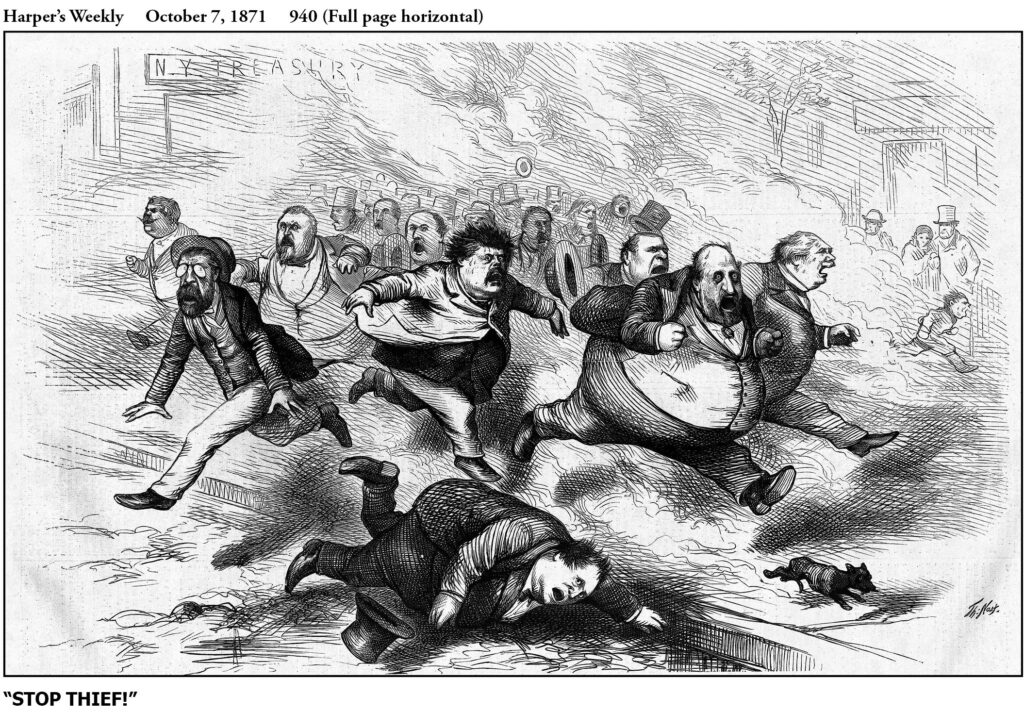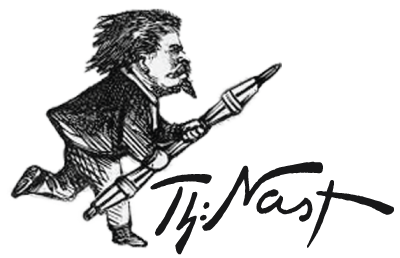
Harper’s Weekly – October 7, 1871
Back on August 27, the Times had editorialized “Why (Comptroller Richard “Slippery Dick”) Connolly was kept in office and how it was done?” The article explained how Tweed’s (April 1870) Charter secretly cancelled the public’s right to elect their comptroller, and made Connolly unremovable by anybody before 1875.
After the burglary, Mayor Oakey Hall tried to fire Connolly, his co-signer on the vouchers, and found he couldn’t do so; their spat was the first public crack in the Ring. On September 15, the day Barnard issued his permanent injunction, Connolly went to see Samuel Tilden for advice. Tilden, Chairman of the State Democratic Party, now became a pivotal player behind the scenes. Although he refused to join the non-partisan Committee of Seventy for a year, he furtively furthered their efforts.
Nast always disliked Tilden whom he believed to be both deceitful and late to the reform movement. Nast battered him when he almost won the Presidency in 1876. For now, both were on the same side, although Tilden never gave Nast credit or referred to his cartoons.
Tilden advised Connolly that he had the legal right to designate his successor. The next day, at Tilden’s suggestion, Connolly appointed Andrew Green, Tilden’s close friend and former law partner, as his deputy — effective immediately.
Nast, who had attended a farewell dinner for Charles Dickens three years earlier and knew his stories well, used Oliver Twist to dramatically illustrate Connolly’s downfall and abandonment as a dozen identifiable Ring members ran for their lives. Hall, who was charged with malfeasance about a week after this cartoon appeared in print, was running away from Sweeny and Tweed.
